An Interview with Ishwar Puri
Interviewed by Leigh Taylor-Young
Ishwar Puri is the initiate of his beloved Master Hazur Baba Sawan Singh Ji and founder of Institute for the Study of Human Awareness (ISHA) in Chicago. He is a former senior official with Indian government, a graduate of Harvard University, and is teaching spirituality in America, as requested by his Sant Satguru, Hazur Maharaj Baba Sawan Singh Ji.
Leigh Taylor-Young Morton: The first thing I’d like to begin with is it’s obvious that you and I are in the presence of friends and family, so before we begin, I consider this a sacred moment to be with you and share with you.
I just want to tell you before we start that I love you, and that I know you somehow, and that I’m very honored to recognize a friendship in the Spirit, and that you are many, many things from what I’ve read and witnessed in your seminars. And surely one of the most important now is you’re a spiritual teacher uplifting people into their soul and into their soul awareness— and if these aren’t the correct words I want you to correct me. I would be very grateful if you would begin our sharing with a prayer that might also bring forward your Master’s presence.
Ishwar Puri: I’m very happy to meet you Leigh, and to meet everybody who is present here. It is a delight to come and visit this place and to feel that we are all part of a family. I don’t feel that I’m coming to a new strange place. I feel that I’m in the midst of people I’ve already known; I felt that I already knew each one that I’ve met. That’s a great experience. I think that the spiritual teachings with which I am associated create this feeling that there are no “others” —they are all our own. When you come and meet seekers of the same path and the same truth, you feel very close to them. That’s how I feel and I’m very happy about it.
My prayer for everybody present here is that we, all together, work towards our goal of reaching our true home, and understand that this division of ours, this separation of ours, is merely for an experience; it’s not reality. It has been created so we can experience the separation that comes from the fact that you and I look different, we all look different…but it’s only for an experience. The truth is we have always been one. That is, if you go to the source, you come to realize that we are one. But it is not enough to say we are one, it’s necessary to feel we are one. I feel that the best way to do that is to go within yourself and see who you really are. When you find that, you will find we are really all one. My prayer is that we go toward that oneness through prayer and through meditation. That’s my prayer for everybody.
Leigh: Thank you. Thank you. Your life is so rich, and one of the things that fascinated me was that you were initiated by Sawan Singh when you were nine years old. Is that correct?
Ishwar Puri: Yes. I was almost nine years old. The date, I remember, was the 9th of March, 1937. That’s the date when I was initiated. When I meet my friends here, most of them were not even born at that time.
This has been a long association with my master. One good thing that happened was that this process that he taught me of how to develop a relationship with my inside, and the inside master, enabled the Master to be with me at all times.
That is, I think, one of the requirements of our system of meditation—that you should be able to meditate enough while the physical form of a Master is alive, so that before he passes on, you get his radiant form inside. That is enough meditation. You don’t have to meditate to go all the way to your true home. If you can get the radiant form of a Master while he’s alive in his physical body, you are able to then go on with the rest of the journey with him internally, and he is never away. When you get that stage of having the radiant form of your Master inside, you will see him inside and outside. It’s an amazing experience that when you have that, you are able to drive a car and you find that he’s sitting next to you. You’re walking; he’s walking with you— physically, externally and internally.
That’s a great experience.
For a person who gets initiated by a Perfect Living Master like Hazur Baba Sawan Singh, there is no death of the Master, because he’s still there. He’s not only there in Spirit or in some presence; he is there physically visible if you have established a contact with him in the radiant form. That is why I’ve never been alone. That’s a great experience.
Leigh: That’s a great experience. I’m shifting from where I thought I was going. In one of your seminars, you shared so eloquently about not only the passing of your son, but also the passing of your father. You described, especially in the passing of your father, as well as your life experience of your son, how the whole family immediately went into celebration rather than grief. Would speak a bit more about that?
Ishwar Puri: That is true. My father was an initiate of the same Master, and he had done some work. He was a regular meditator. In fact, he meditated more seriously than I ever did in the sense that in the early morning he would take a cold shower, to make sure that he wouldn’t fall asleep during meditation. He took it seriously and had some wonderful experiences. In our family, we knew that he was a leader in this area and other people followed him. The rest of the family became initiates of Baba Sawan Singh afterwards.
When he died, I knew that the great Master Baba Sawan Singh had told us that he was, in a past life, a tree. From a tree, he had been able to jump over the evolution to a different species, directly into a human being because he was the tree under which a Perfect Living Master sat and broke a twig to use as a toothbrush, which is common in India. This one event, a physical event, can change your destiny. He always knew that, and he used to hit his head and say, “I think it’s wooden still.”
When he died, I was curious to know where he was because one of my uncles used to say, “He could have reached halfway to the universal mind.” which we call Trimurti, or the causal plane. I said, “Maybe he’s gone further, but I don’t know. I’ll check with my Master.” I was driving down to Delhi where I had a meeting, and on the way I checked up through meditation. My master said, “You can’t see him.” I said, “Why not?” He said, “Because the moment he passed from his physical body, he merged completely with me and he is in the same place where I am, where totality is.” That was a great experience. I said, “Did he meditate so much?” He said, “No. It’s not meditation that takes you beyond a certain point, it’s love and devotion.”
So the real secret of the spiritual path as I understood it (and I still have been able to maintain that experience) is that you cannot go beyond the regions of the mind except with love and devotion. If you want to ask, in a nutshell, what is the spiritual path taught by Baba Sawan Singh, it is that love and devotion is the key. And that’s what I learned from my father too.
Leigh: What you all did, realizing where he was, there was no grieving, it was a celebration.
Ishwar Puri: There was no grieving. When I informed my mother this happened, she celebrated. My brother was in the Navy and she called him and said, “Great, you know your dad has reached the ultimate,” and he celebrated on the boat. People came to grieve with us in our house, but they were surprised that we were celebrating something. They thought that maybe the whole family had gone crazy.
If you have an experience of dying while living, you’re never afraid of death; it becomes something very different. Just because we don’t know what happens after death, we grieve, and therefore, we are afraid. Most of the insecurity in our life is fear of death, fear of the unknown. If you have had that experience of dying while living, that means experiencing that while you’re still alive in the physical body. So you have no fear at all. You become totally fearless. That’s a great experience, too, in this world. When you see so many people afraid of so many things, then you suddenly find that there is a way to be fearless, and this is one of those ways.
Leigh: I love that—fearless.
Ishwar Puri: Fearless and without doubt. Otherwise, our mind is, I think, indoctrinated to create fear and doubt. First, it creates doubt. “What can happen? It can be this or that.” Then that doubt leads to fear because we become uncertain. We don’t know what’s going to happen so it becomes the fear of the unknown. That is why we are all insecure—the lack of that awareness of what is going to happen. Once you see what the reality is, you get a certainty that you can’t get any other way. You can have logic and you can discuss things and still be left with doubt, but if you have an experience inside it gives you certainty.
Leigh: When you use the term “Perfect Living Master” would that be equal to Satguru? Is it the same meaning?
Ishwar Puri: Yes. Satguru means a guru who is true. “Sat” means true. A true master is one who has achieved something that is true, and what is true is what is beyond the mind. If you are truly aware of the spirit, if you’re truly aware of what we might call our soul in distinction to the mind, then that would be a Satguru or a Perfect Living Master. We call him perfect because the mind creates division and separation, which create imperfection. When you see totality, it is perfect. That is why a human being who has attained that awareness of totality is a perfect person, and he’s perfect because he has seen totality. When he shares that with us, he is a Perfect Living Master, he is a human being living like us, and yet he has that perfection.
The difficulty arises when we find that we are dealing with a human being and not with somebody higher up. This question has been asked of me several times. “If the truth is inside us, and we all say go within to find the truth, and the kingdom of God is within you, then why do we need an intermediary? Why do you need a human being outside of yourself to find something that lies inside you?” The truth is that the human being I’m talking of, who I call a Perfect Living Master, knows my inside better than I know it and because he is not working from outside (since that’s a reflection we have created) he’s actually inside us. When you come across such a person in life, he’s actually inside us and he’s helping us from inside. We don’t see him inside, therefore he appears outside. That is why there’s a very close connection with a person who has that awareness.
Moreover, there are several Masters who have attained a certain level of experience which is higher than the physical experience, but they can only take you up to that. The higher limitation is that they cannot have the experience all the time with them. They can go to a higher level, have that experience, come down, be the physical experience, and explain what they saw (if they can retain the memory of that experience). But a Perfect Living Master does not have to be remembering something that he saw; he is in that state all the time, 24-7.
Even when he’s talking with a human being, his awareness is at all levels of creation, all levels of consciousness, and that’s a very big difference. Even as a seeker, as a disciple, we can have some progress in our spiritual experiences and go, say, to the astral plane. The astral plane is nothing but our own sensory system that operates if we don’t have the physical body. You forget your physical body, become unaware of it, and you are automatically in the astral plane. The sense perceptions still work, they become sharper than they are in the physical body. The sense perceptions, by themselves, are the astral body. It’s not a body, it’s just the perceptions still working together, and they take the same form as if we are in a similar body.
Once you transcend that, you go to the causal plane where your mind itself becomes your body. The causal body is your mind, the astral body is your sense perceptions, and your physical body incorporates these inside you. What makes all these three alive is your soul, your consciousness. If you’re not conscious they all die. The consciousness, which is your soul or your real form, makes these alive.
Most people, when they go into these experiences, they go to one experience at one time. This physical world is a reality right now. We’re sitting talking, and this is our reality. There’s no other reality at all; you can be imagining the other things, and we can talk about other things. But when we go into that state of awareness that becomes the only reality. This reality becomes like a dream, and that reality is real. When we get back to this, that looks like a dream and this becomes real.
The same thing happens at the causal level, but if you reach the totality at the top, all of the levels look like dreams and all of them look real.
Leigh: When you talk about the top, the totality, would that be what we might say is the heart of God, the creator?
Ishwar Puri: I could call it the God, the creation of God, I would call that the source of the word, the source of shabd, the source of the sound current, the source of the very stream of consciousness that descends right into every level of experience including where we are now. That is never interrupted.
Leigh: The Perfect Living Master is one who can take you to the totality because that’s where they’re sourced. Is that correct?
Ishwar Puri: Absolutely, that’s correct.
Leigh: And they’re rare?
Ishwar Puri: They are very rare. There are a lot of teachers who can take you to different levels of experiences. Most of them today, and there are hundreds, maybe thousands of them, are practicing different kinds of yogas and they get unusual experiences by taking your attention to the different energy centers below the eyes. They do not improve your awareness, they do not change your realities, they bring you a different experience in this reality.
This physical body, as you know, has a division at the eye level. Below the eyes are centers of energy which sustain all of our energetic experiences, but the awareness is behind and above the eyes. There are very few masters who work at that level. Those who go beyond the mind, where your effort cannot do anything because it’s all mental, and where meditation cannot work because that’s also an effort— those are very rare. They draw you, pull you, through the power of love. That’s what it is. You can’t struggle to go there.
I sometimes compare the masters by using the metaphor of motorcars. There is a four-wheel-drive; there is a car that is rear-wheel-drive, where the engine pushes the car; and then there is a front-wheel-drive where the wheels pull the car. It’s a push and pull. Meditation, as we know it, is a push, rear-wheel-drive. Being pulled by love inside is like being pulled in a front-wheel-drive. So the Perfect Living Masters are front-wheel-drive vehicles.
Leigh: When you were initiated at nine, were you initiated with the five names of God?
Ishwar Puri: Yes, I was. I was initiated with the same names that my Master said he was initiated into by his own master, Baba Jaimal Singh. He was very open about it. At the beginning of the decision process he said, “What I am going to give you is what I have received from my master. It has worked for me; I hope it will work for you. If it doesn’t, go and search for more. You are free. Don’t come back to me to get my permission. You are free to go and search anywhere for something better, but do me one favor. If you find something better, come and tell me, and I will also go and take it.” This openness of this path is what struck me as something unusual.
The others were trying to hold you back and became cults. This was never a cult, and it was so open. “Here is something for you to practice. If it works, very good. If it doesn’t work, find something better.” I took it so seriously that I actually investigated every kind of yoga and every possibility of doing other things so that I could be able to tell him, “I found something better,” but I didn’t. I tried for eight years very seriously, and I couldn’t find anything better. Until today I haven’t. If I find something better, I’ll take it and I’ll go back to a Master and say, “I have found it; you take it also.” It’s such an open thing.
Leigh: This is so wonderful because I know you know that a number of us here are involved with a Master, John-Roger, and also John Morton, and we are based very similarly on the five names of God, except we’re not given them all at once. We’re given them as we get progressively initiated in each level. And the sound current is the core. Would you speak to us a bit about what we call Soul Transcendence—the soul, the consciousness of soul, and the audible life stream?
Ishwar Puri: Those are wonderful words. The meaning is the same. There is no difference at all. About getting the initiation in stages, the great Master also used to give the initiations in two stages for young people, and for small kids, like myself. I was taken for a half initiation. He would give to small kids the method of listening to the sound first. He was giving that kind of initiation even to kids five, six, seven years old, and I saw that. I was not the youngest to get initiation, but I was the youngest get a full initiation. He would give them the method of listening to the sound within, and when they grew up, after practicing, he would give them the five names to repeat.
Those who were already teenagers, he would sometimes give them half initiation by giving them the five words to repeat, and later on teach them how to listen to the sound current. I don’t know if that practice is being followed by other masters or not, but he did do that division into two.
Leigh: I love what you said about the openness. Do you think there was a challenge for a true living Master like Sawan Singh in possibly becoming an icon or something adored and worshiped, because of the pull of his power and the love? Was it a challenge for others to not become attached in that way? I think it’s a challenge when someone is so amazing, to make sure that your connection is from the right and not from blind faith.
Ishwar Puri: I understand your point. The way these Perfect Living Masters contain that is by their humility. They are so humble, they never say they are Masters, they claim to be ordinary people. They associate with people like ordinary persons, like any other human beings. That way they hide themselves and they do not allow that kind of adoration that would come if they sat on a pedestal and said, “We are the higher-ups.” They never do that. That’s one of the keys to understand. If he is a Perfect Living Master he will never say, “I am a Master, I can do all these things.” That’s sort of a disqualification because that’s where you find people running after them and putting them in a state which will be a challenge for them. They meet the challenge with utter humility.
Leigh: Also, it seems to me that the Perfect Living Master is always turning you within so that you’re not holding the attachment externally, so that it’s for you to become as he is.
Ishwar Puri: The difficulty with this problem of attachment is that you cannot fight attachment. The more you try to fight attachment the more you get attached. I was talking to you about my fondness for pizza. Supposing I say, “I am attached to pizza. I’m not going to be attached anymore,” and I said, “No pizza, no pizza,” pizza will remain in front of me forever.
In fact, there is an interesting story of an American seeker who traveled to India because he found that in the Himalayan Mountains lived a swami who gave some magical words to repeat and you could get enlightened. He said, “That’s a good shortcut,” because you know Americans like instant knowledge, and he said, “That will be great to get some words and get instant knowledge.” He had to travel all the way by bus and go into the mountains. Ultimately, he reached that place and found the swami inside a cave.
He waited, the swami came out, and he said, “I have come from the United States. I am a seeker and I understand you give certain words and one gets enlightened.”
The swami said, “Sure, I do.” “Will you give me those words?”
He said, “Sure, since you’ve come all the way, I will. Come near me.” The man approached the swami and the swami whispered in his ear, “The magical words are abracadabra.” He said, “What! I’ve come all the way to hear abracadabra?” He said, “No, there is a catch to it. When you say abracadabra, don’t think of bananas.” The man tried all his life. Every time he said “abracadabra,” bananas were in front of him. The swami was making a point that you cannot push away attachment. The harder you push attachment, the more you get attached to it.
The answer to that question of how to deal with attachment is in how we get detachment. You can’t practice detachment. The only answer we found was to get attached to something else. You can be attached to one thing, and if you get attached to something else different from that, your attachment will be pulled away. When you get attached to that unconditional love of a Master, those other attachments go away and become detached.
Leigh: Oh, very good.
Ishwar Puri: You have to be pulled by that unconditional love, that’s the experience that gives you detachment.
Leigh: Would you speak about the pull of the living Master when maybe we haven’t even met the living Master yet Perhaps it is predestined? And then there’s the pull of the Master that stays with us while we’re alive with them, and then the pull of the Master after they pass. Could you speak a little bit about how that works?
Ishwar Puri: Predestined? The pull of a Master is predestined because our going back to our true home is predestined. The reason it’s predestined is we came here not for staying here; we came here for adventure. We came here to have a different kind of experience. The consciousness adopted certain instruments, certain tools, in order to have different experiences. These tools were our own mind, our sense perceptions, and the physical body. There are other kinds of tools also, but let’s look at these three.
These three have given us varying kinds of experiences, and we have not come here to stay. We never had that intention. We were not that stupid that we were going to stay in this messy place. Before we ever came here we made an arrangement to find a way to go back, and we’re using that way to go back, at a predestined time. And that is when a Perfect Living Master comes into our life.
I’ll tell you an interesting story here. Somebody asked me to see a movie called Inception. You must have seen it. Inception is a story where people can dream, within a dream, within dreams. They can go into three levels dream, within a dream, within a dream. Somebody advised me to see the movie. I don’t normally see movies but I saw that one. In a dream, one thing you can do is to stretch time. A 10-minute wakeful state can create an hour of dream, and an hour of dream in a further of dream can create a lifetime of 50 years. So you can have a whole life experience by just dreaming within dreaming within dreaming.
I said, “How wonderful.” Here we are dreaming not three times, but six times from our true state. So a timeless moment there can be made into trillions of years here, and that’s what’s happening. We did this in order to have different experiences. And I’ll tell you why we’re having these different experiences, including pain and pleasure and including all the atrocities that are going on: Because we are making this experience an opposite. In this experience of duality, we are making an opposite of the world of non-duality where we belong; but in non-duality we don’t have an opposite to experience, so how do we experience it? By creating a world of duality, it becomes an opposite.
In that movie, they also have an arrangement of how to wake up if they want to. They have a little totem in their hand which they carry before they go into sleep. In the dream they can take that experience of holding a totem (which is a little prickly thing that pricks their hand) and, through the pain, they wake up. We have a totem too to wake up to the ultimate wakeful state, and that is the appearance, at a predestined time, of a Perfect Living Master. He is the totem. So the living Master has initiated us, and he has placed himself inside us as a visible being. Even if he dies, he is not gone; he still there and we experience that.
This real nature of the pull of the Perfect Living Master, is unconditional love. It’s really different from the love where we say, “What have you done for me lately?” It is not a love where any conditions are imposed on us. There is no judgment involved. A Perfect Living Master will never tell his disciple, “Well, be good otherwise I won’t help you.” Never. He will not be charging at all. He realizes that we are already trapped within our different kinds of karmas into various kinds of obligations and situations. He has compassion for us, he’s not judging us. Therefore, his love is nonjudgmental, unconditional. Even if you associate for a little time with such a person, that kind of love pulls you externally, and then later on internally.
Leigh: Thank you. We use the word agnostic for someone who doesn’t really have faith in a higher power. Can that person gain benefit, even if their mindset can’t see it, by the presence of the Perfect Living Master coming into their life?
Ishwar Puri: Absolutely. If you come to some of my meetings you will find a lot of atheists are sitting there. They don’t believe in God, they don’t believe in anything else, but they do believe that they are there. My starting point is to start from where you are. Whether you believe or not, the experiential nature of this path is very different from blind faith. In fact, it requires no faith. You start by knowing you are there, and that doesn’t require any faith. Everyone who is alive and conscious knows he is there. The presence of the Self, in whatever form you see it—whether you think this physical body is the Self, or you think something else in it is the Self—is always there and known to you. It is known so clearly, without doubt, that nobody can question that. Nobody has ever questioned that.
There are some experiences we have which are called experiences of certainty. One of the big examples of that would be when you go to sleep and have a dream, you forget this body. You’ve gone somewhere else, you’ve gone into a dream world, into dreamland, and then you wake up. Do you then ask, “Am I really awake?” Has anybody ever asked, “Am I awake?” Supposing a number of people stood outside and said, “You’re still sleeping,” would you believe them? Your own experience of wakefulness carries a certainty that nobody can destroy. These are some of the certainties. Why are you so certain that you are awake that you don’t even pinch yourself, you don’t even try to find out if you’re awake, you know you’re awake. How does that awareness of wakefulness come? One of the main reasons is that you remember that you went to sleep. That’s a big thing, it’s all working on memory.
Supposing you did not remember that you went to sleep. You could be lost. But if you remember you went to sleep in the same bed, you don’t have to open your eyes to be awake, you don’t have to move, you’re still awake and in the same state in the bed you know. “Yes, I went to sleep here.” This recall of the previous state which occurred before you went into a lower level of consciousness gives the certainty of wakefulness.
The same certainty comes when you get to the higher astral plane; the same certainty comes when you come to the causal plane; the same certainty comes when you go to your true home. These are the experiences of wakefulness. They’re not journeys to somewhere, but we call them spiritual journeys, traveling. It looks like travel because we are traveling in experiences through time and space. Right now we travel and we think we really move. You know, we don’t really move. Consciousness does not move. Experience moves around us and we think we’re moving. The same thing happens at other levels of consciousness that we experience in meditation.
The truth is that the sense of certainty that comes with internal experience, you can’t beat that. It just carries its own conviction. Even an atheist can come.
I’ve come across some strange atheists. One said to me, “Thank God I’m an atheist.” Everybody has some kind of belief system, even the atheists and the agnostics.
Leigh: One of the things that I’m hearing is there is great value in being a skeptic, which I call checking things out. Check it out, don’t believe. Your real evaluation of something is your inner experience.
Ishwar Puri: I entirely agree with you, entirely agree with you. Skepticism was one of the greatest gifts given to us because if you’re not a skeptic you’ll believe anything that happens. How do you distinguish between one choice and another? Skepticism is necessary. But the only thing is that you can’t be a skeptic forever. If you’re a skeptic and you want to find out something, and you spend your whole life trying to find out, then you have missed the bus.
The story is told of a man in India. The villages there have wells where they don’t have any parapet walls, they’re level with the ground. A city man was walking in a village and he fell into the well. The well, fortunately, was shallow so he didn’t drown, but he wondered why he fell in the well. He was crying and shouting and somebody heard his moaning and groaning and came to help him. He said, “Can I help you? I can bring a rope and send it down and pull you up.” He said, “Before you bring the rope, first tell me why did I fall into the well? Secondly, tell me if you bring a rope, how do you know that when I’m trying to pull myself out you won’t drop me again? Explain all these things to me before I agree to being pulled out.” The other man said, “Look, I can answer all of these questions once you’re out of the well. Because you fell into the well, you know you’ve fallen into the well, and you want to come out. Why don’t you wait until we pull out? “No. I won’t hold the rope unless you first answer all the questions.” We can carry skepticism to that absurdity.
There are people who would ask questions, and one answer leads to another question because, unfortunately, in life there are a lot of contradictions. You come across so many contradictions when you apply reason to things, and some cannot be explained by reason. People get confused because one contradiction leads to another. You can be so involved in them that you answer, “I am a skeptic, therefore I am doing this. ” That kind of skepticism keeps you away from truth. It does not help. Real skepticism, where you want to get answers to your basic questions, is necessary to find the truth, and I agree with you.
Leigh: I’m so interested in how—considering your early life, your family, your initiations, and your exposure to the Perfect Living Master—you came to be a scientist? If I understand it correctly, you went to Harvard, and you became an engineer. How did that bridge happen?
Ishwar Puri: I didn’t see any difference between the two. Today I don’t see any difference between science and spirituality.
Leigh: Oh, good. I wanted to ask you about that.
Ishwar Puri: The scientific approach to creation is trying to find out. The significant change took place from Newtonian physics, to Einsteinian physics, to the development of quantum physics where they found that the observation of a person is changing matter. That’s a very big thing. Einstein himself, in the last moments of his life, said, “I did not give enough attention to the role of an observer.” You know, those comments are now coming into play and people are looking at the power of observation.
What they’re investigating is, how do we know there’s a reality? I’m talking physics now. How do we know there is a reality? Because we observe it. Whether you observe with your eyes, or through a telescope, or a microscope, or any equipment, you’re observing it. That means an observer is necessary to know there’s reality. Maybe the observer creates reality—something that is being propagated amongst scientists today. Science has come so close to understanding that there’s a very big link between a conscious observer and what he’s observing. Very soon they’ll be able to find out it’s the observation that creates the experience, and not the other way around.
There’s a very old story of people asking, “Is the tree there, therefore I can see it? Or I’m seeing it, and therefore the tree comes?” One can answer that by saying whatever comes first must be the cause, whatever happens later is the effect. That tree has to be the cause before you can see it. If you don’t place a tree in front of you, you won’t see it. But placing the tree in front of you is like an experience too. Is that being created by your seeing the placing of the tree, or are you seeing and that’s creating the tree? When we examine that, then how we see a tree, the seeing of the tree and the tree itself are absolutely simultaneous. There’s no time lag at all. Therefore we can never say which is the cause and which is the effect.
In the Fermi lab near Chicago, there are three colliders where they collide particles to see what happens. They are able to accelerate a particle beyond the velocity of light, and the whole thing is being photographed. The particle reaches the destination before it left. That is an amazing thing. You can see where science is going. A particle can be seen at the destination and it is also there at the beginning, and it’s only one particle. But this is not something new. They knew earlier that in a hydrogen atom, a single electron moves around in an orbit around the neutron. That single electron, where is it?
Leigh: Right there.
Ishwar Puri: It can be anywhere in the whole cycle of orbit all around it. We know the distance from the nucleus but we don’t know where it is. When you put a laser pointer at the point of the distance, it’s there. After that it’s always there, and before that it’s everywhere. These are questions like whether it’s a wave or it’s a particle. This thing has been going on for quite a time.
Leigh: When I was young I studied Vedanta and I was fascinated because I knew a lot of physicists who were also involved with spiritual study. One of the axioms was the observer and the observed is one. This is ancient, ancient understanding coming forward now in another way in our modern science.
Ishwar Puri: I agree. This is ancient knowledge which is coming up now to the West but you got it from the East.
Leigh: Yes, so on that note how do you perceive this ancient, remarkable information, going back to the Mahabharata, to the Vedas, to Vedanta, that was laid down thousands of years ago and that in many respects science is just discovering? Is there a movement from the East to the West in our spiritual understanding?
Ishwar Puri: Absolutely. As I mentioned to you earlier, my Master Baba Sawan Singh predicted that the kind of knowledge that we have had for centuries here in the East is going to move into the West, and the East is not going to retain the knowledge because they’re going to move so much into acquiring material wealth that they will become like what the West was in its development. The West will now seek those answers because the knowledge of the East is going to move to the West, which is happening.
Leigh: Yes, and we’ve already been through a massive industrial revolution, we’ve had all this materialism, which is a good place to begin to ask the deeper questions.
Ishwar Puri: Absolutely. These questions are being asked not only because they are beyond the material wealth, but because affluence has not satisfied us. Affluence has not given us the answers we wanted and we still have the same questions. That is why this knowledge coming from the East to the West is going to provide those answers.
Leigh: In terms of the world that we’re seeing today in the newspaper, that’s very hard to look at sometimes, I would love your thoughts on whether this is predestined. Or if we’re creators and we create our reality, or it’s all an illusion, or it’s predestination for a higher purpose,—which would be my optimistic way of looking at it.
Ishwar Puri: I don’t believe there are creators, only one Creator.
Leigh: Yes, but we’re creative as humans.
Ishwar Puri: The one creator appears to be in so many of us, but doesn’t become many, it still remains one creator. If you’re in a dream, you go to sleep and have a dream and you meet 20 people, are 20 dreaming or one? When you wake up it was only one. This awakening that takes place in us at the end leads to only one dreamer, one creator. Therefore, the one creator is appearing in all these forms.
When you say that the creative power is generating these experiences, it’s all predestined. It’s simple. Most people in different religions believe in God. What is the definition of God? He is the creator. He is omnipresent, he is omnipotent, and he is omniscient. The third word, omniscient, means he knows everything. Does he know what I’m going to decide tomorrow, or not? If he doesn’t, he’s not God. And if he knows, it’s predestined. So when we’re asking the question of whether we have free will or if it’s predetermined, just with this proposition we discover that if God is a reality as we understand it, then it has to be predetermined—everything. So it’s predestined—the whole thing— but it doesn’t look like that. And it deliberately does not look like that because otherwise there will be no game, you can’t make any choices and you can’t do anything. Free will is a great experience but only an experience. It’s not real. It’s predetermined. How we make our choices is also predetermined, what thoughts come to us is
also predetermined.
I had a personal experience with a guy in India. I had gone for an interview for the Navy. After the Navy interview, I came out with some papers in my hand and I met this man with a turban. He said, “Do you have a piece of paper?” I said, “Yes,” I took out a piece of paper. He looked into my eyes, he began to write something. I didn’t know what he was writing. Then he folded that paper, and when he folded it he said, “Hold it in your hand,” so I held it in my hand. “Have you more paper?” “Yes, here it is.” “Now you write,” he said to me, “Write a number between one and ten.” I said this is a game we used to play as children, where you say write a number between one and ten, and everybody writes five. I wanted to call his bluff, so I wrote three. He said, “Write the name of a flower.” I thought the most common flower is a rose, he’s asking me to write rose. I’m not going to write that, I will write the name of a flower he has never heard of, so I thought of a flower which is in Punjab, our state, it’s called chameli. I wrote in English, C-H-A-M-E-L-I, in capitals. He said, “Write your date of birth.” I wrote 1926. That’s not the date, that’s the year, and normally we write the date of the month before the year, but I added the month 11 afterwards.
He said, “Open the paper I gave you.” I opened the paper. It said three, CHAMELI, 1926 and then the date, exactly like I wrote. Completely floored me. How could he write something that I had not even thought of? How could he write something that I had decided on later? While I was still struck by what he had done, he asked, “Shall I tell you more?” I said, “Go ahead.” He said, “When I asked you to write a number between one and ten, you said, ‘I’m going to call his bluff; he is expecting me to write five,’ and when asked for the flower, you said, ‘He is expecting me to write rose.’” He knew exactly how I thought. He knew it and actually demonstrated it. I asked him, “How did you learn this?” He said we have a Yogi, we have a swami, and he teaches us how to read the mind of anybody. Obviously, for him to be able to read that, it all has to be predestined.
When we think we’re making choices, we think we are applying some rules of finding out how to make choices to our current decisions, but they’re all working only through predestination. I have had other experiences which also prove the whole thing is predestined, but we don’t see it like that.
Leigh: Were you designated by Sawan Singh to become an initiator so could you pass the initiations on? Do you have initiates?
Ishwar Puri: I am only helping people who are marked by my Master. I do not initiate.
Leigh: Your Master initiates through you?
Ishwar Puri: He does. I watch it. Not only do I watch it, but because of my relationship with my Master, I ask him, “This guy has come in front of me and says initiate me. What do you say?” He says, “He’s marked. Yes.” I don’t even call it my initiation, I call it great Master’s initiation. Most of the people who come to me for initiation are already initiated. Most of them have had masters who took them up to a certain point, and then they couldn’t go any further. They are the ones who are coming for this kind of initiation, which is great Master’s initiation, not mine.
Leigh: Thank you. I saw one of your seminars and you gave me a key for my life that is so profound. You talked about the five senses. You said the sixth sense is intuition, the seventh sense is common sense (which I loved) and the eighth sense it the sense of humor. Then you said there were two profound words of a mantra and I was all ready for something really deep… And you said, “So what.”
Ishwar Puri: Absolutely, that is a practical mantra.
Leigh: I would like you to speak about humor and “so what.”
Ishwar Puri: You can deal with any situation in the world, no matter how profound or how difficult it is, if you look at it in its totality. What is the place that it has in your life? And you will say “So what and so what.”
Leigh: That’s a gift to me, thank you, because one of the things that I deal with is that my environment stimulates me. I can get into urgency, like busyness, meeting deadlines, and getting it all done, completing, and crossing things off the list. And it can really lead me to exaggerating their importance. So when you give me the key of so what…
Ishwar Puri: I’m so happy the key worked.
Leigh: It really worked. It was really useful, and it still is useful. Drawing to a close, I have one or two more questions. One of them is why do you think it is that women generally don’t become Perfect Living Masters?
Ishwar Puri: That is not true. Women have been Perfect Living Masters.
Leigh: Can you tell me about them?
Ishwar Puri: Socrates’ Master was a woman. He described it. He learned everything from a woman Master. There are many Masters who in India who were women also. But somehow because our society is more oriented to male dominance, which has been going on for a long time, women have not been brought into so much prominence. But their teachings exist. There’s no bar on a woman becoming a Master.
There is no difference, at the level of the Soul, between a man and a woman. The difference arises from the mind. If you see from the top how the creation descended and created gender, and created the experience of love by dividing us into genders, you will find that in Parabrahm, which is beyond the region of the mind, there’s no difference. The Soul is only one and it encompasses both the male and the female principles. When we’re talking of Perfect Living Masters, they can be a woman or a man.
Leigh: Thank you so much.
Ishwar Puri: You’re most welcome, I’m very happy to have this conversation with you.
Leigh: Me too, and I hope it’s an opportunity where we got to see each other again and share again.
Ishwar Puri: Definitely. I feel so much at home here, and I want to thank everybody here, and I love this beautiful place.
Leigh: Thank you, God bless you.
Read the complete NDH July / August 2016 Edition via ISSUU







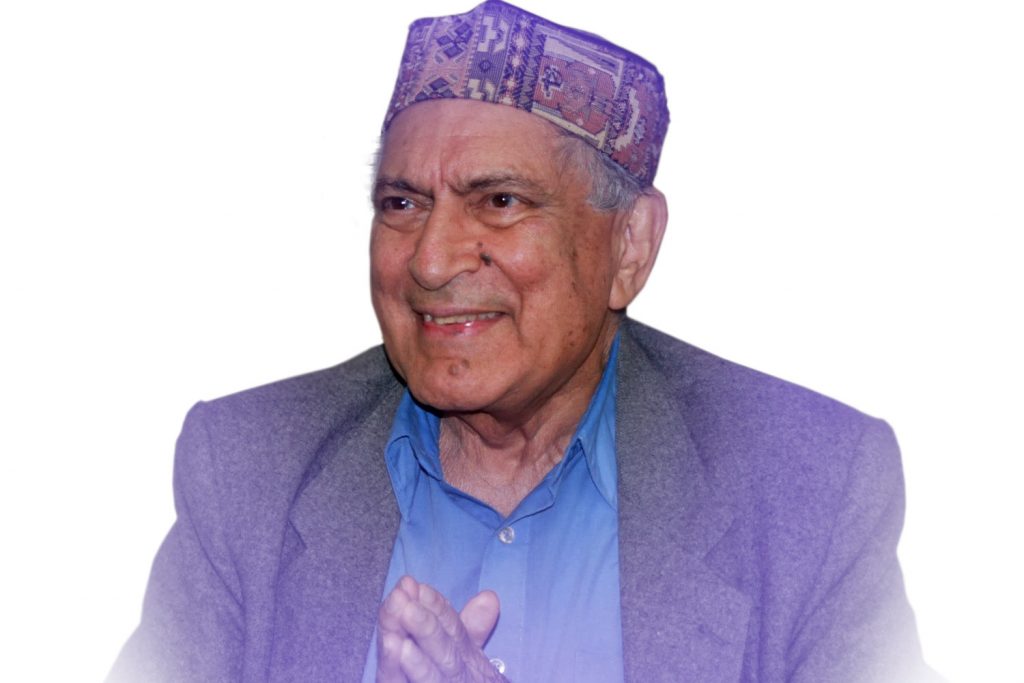
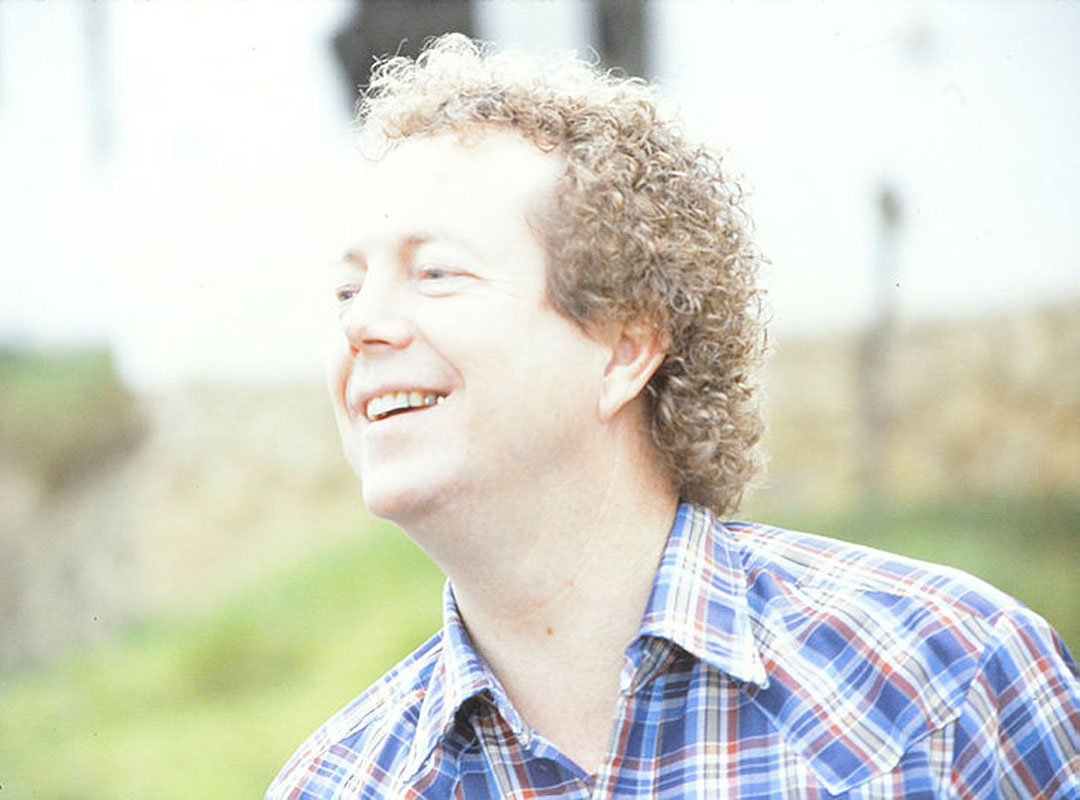
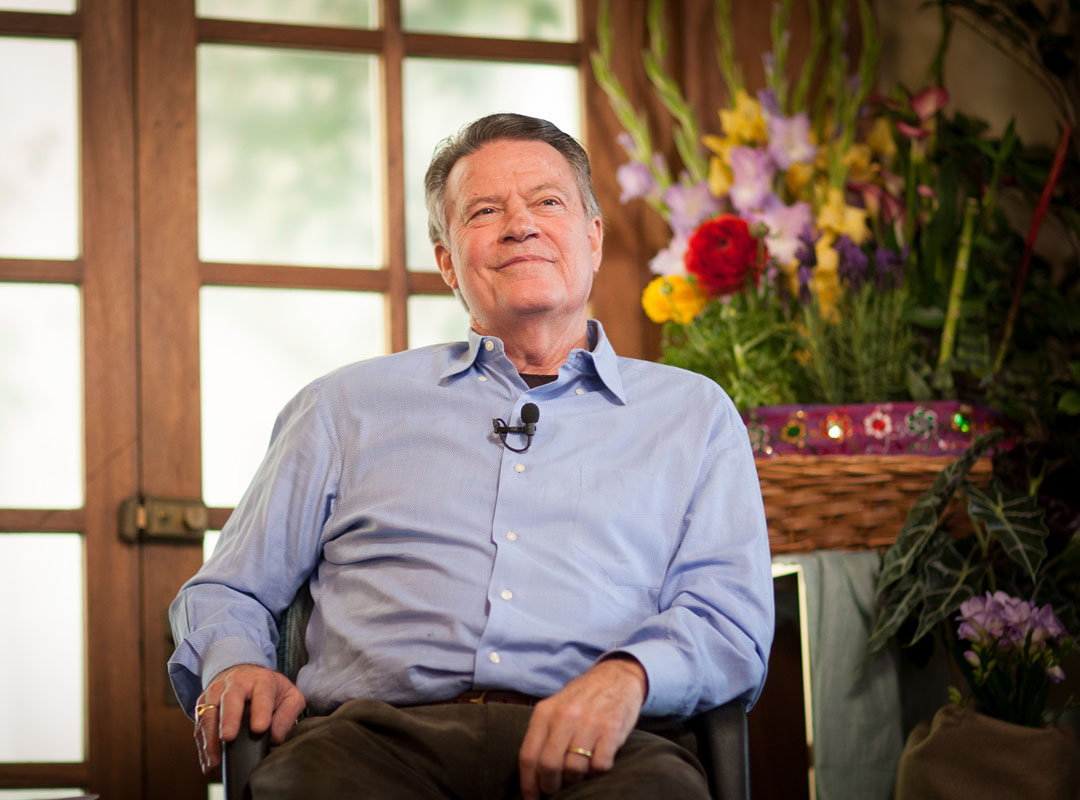
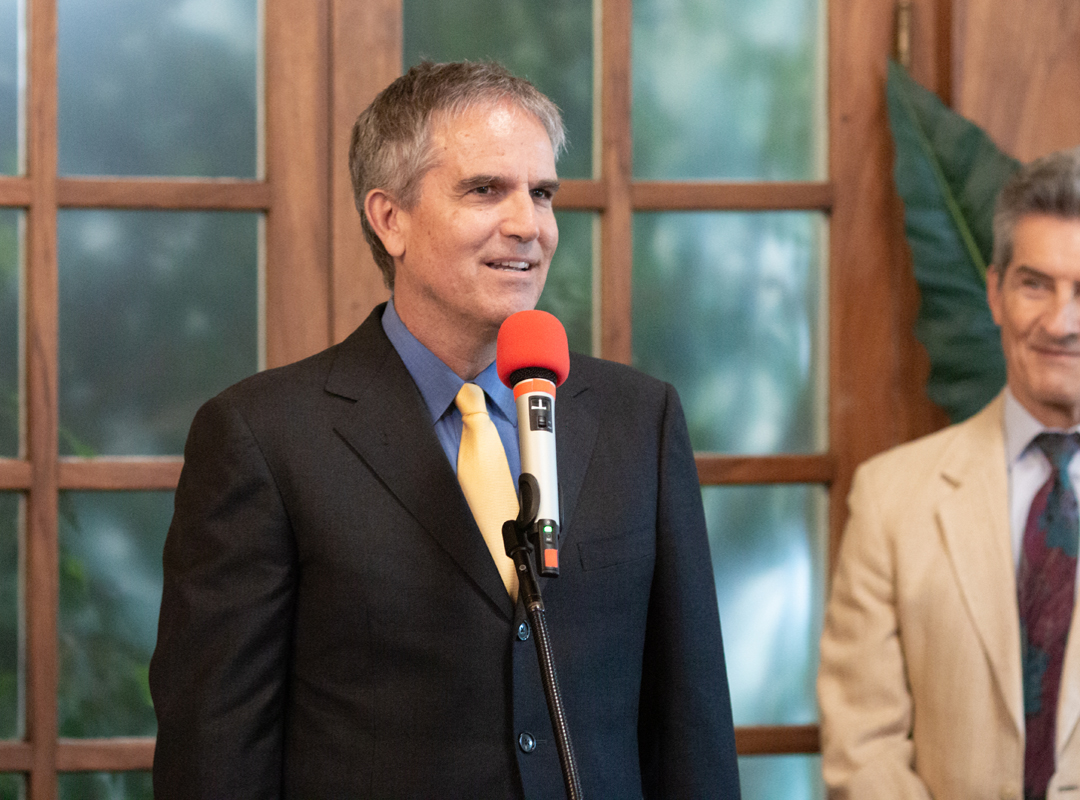
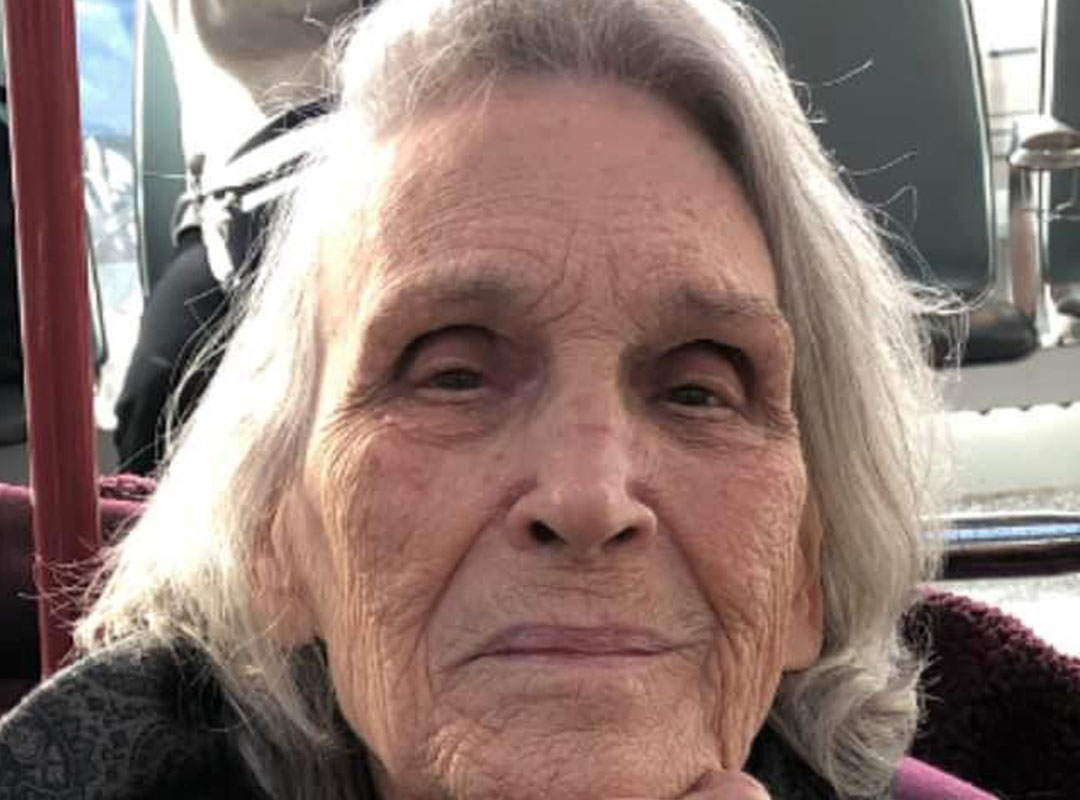
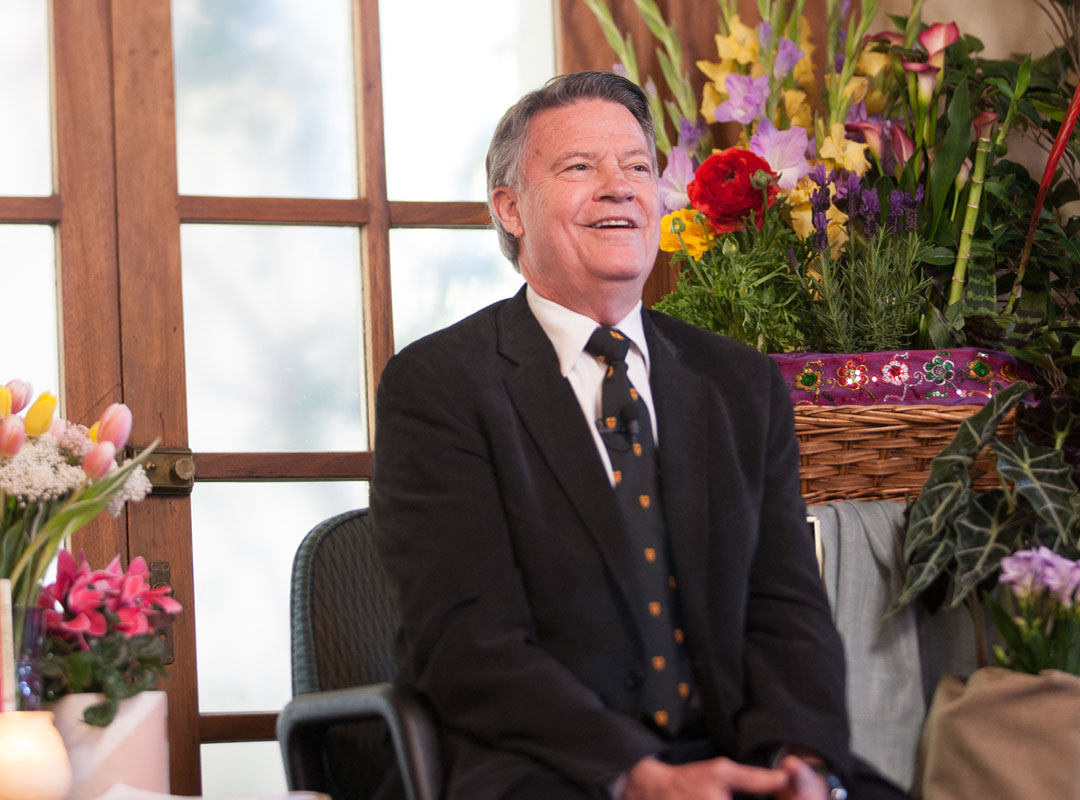
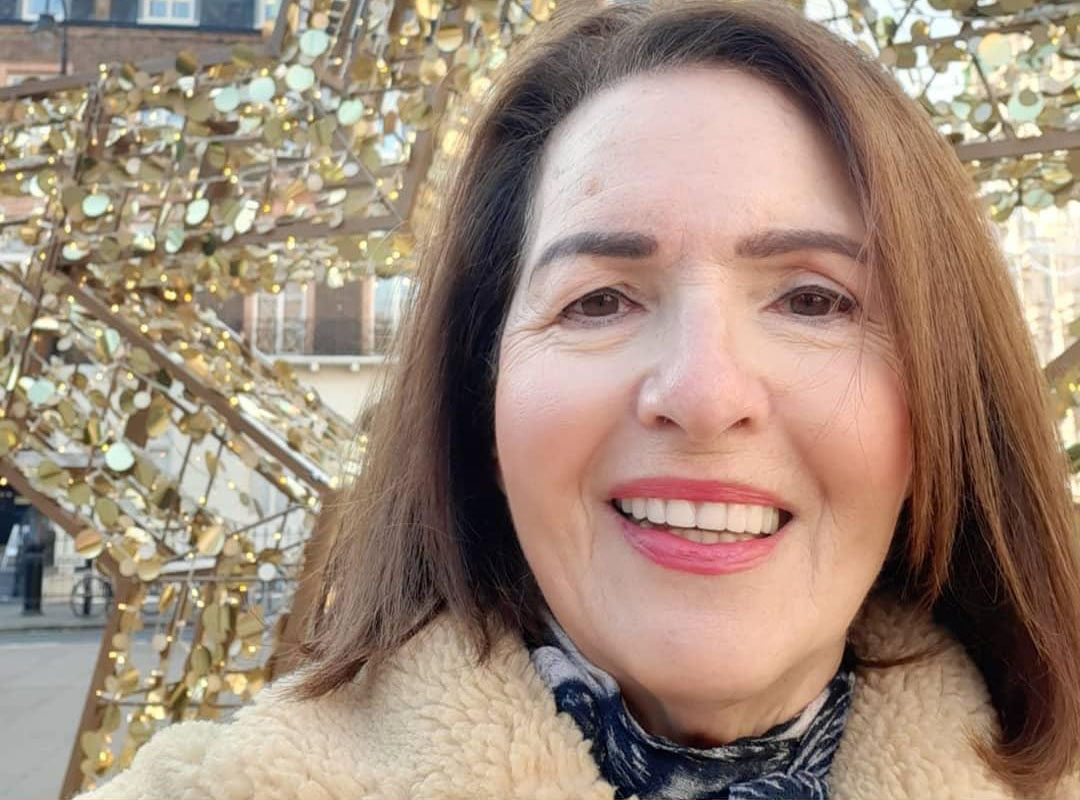
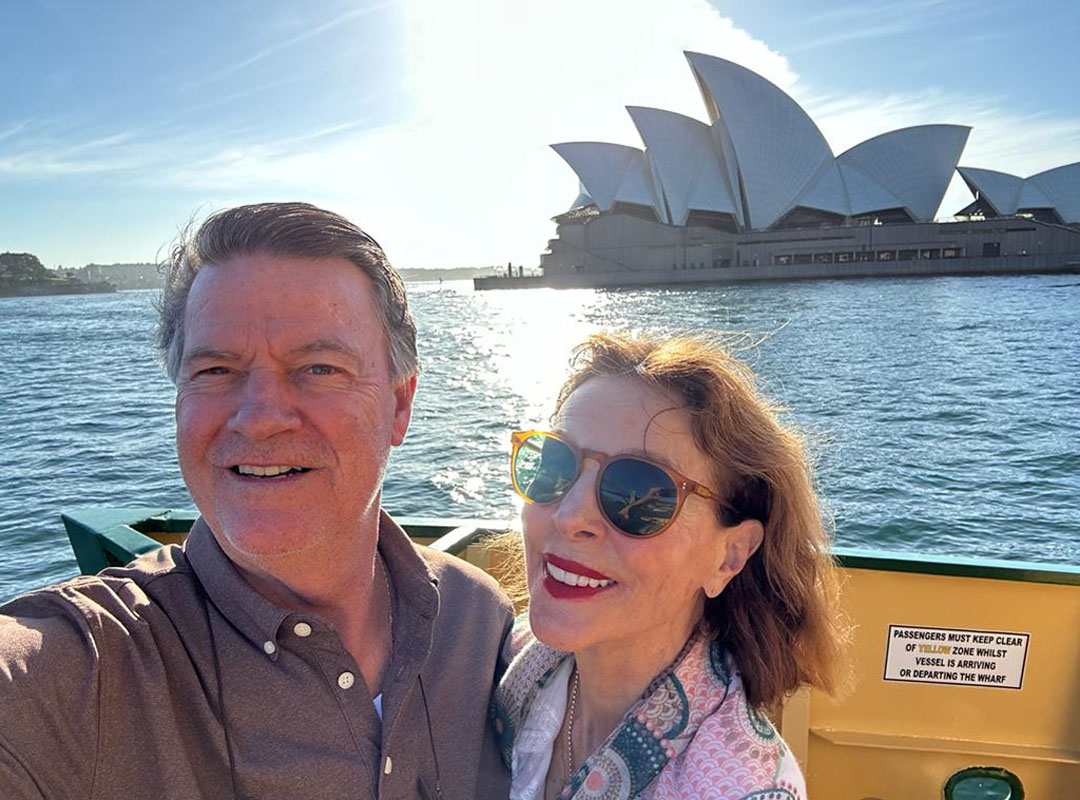
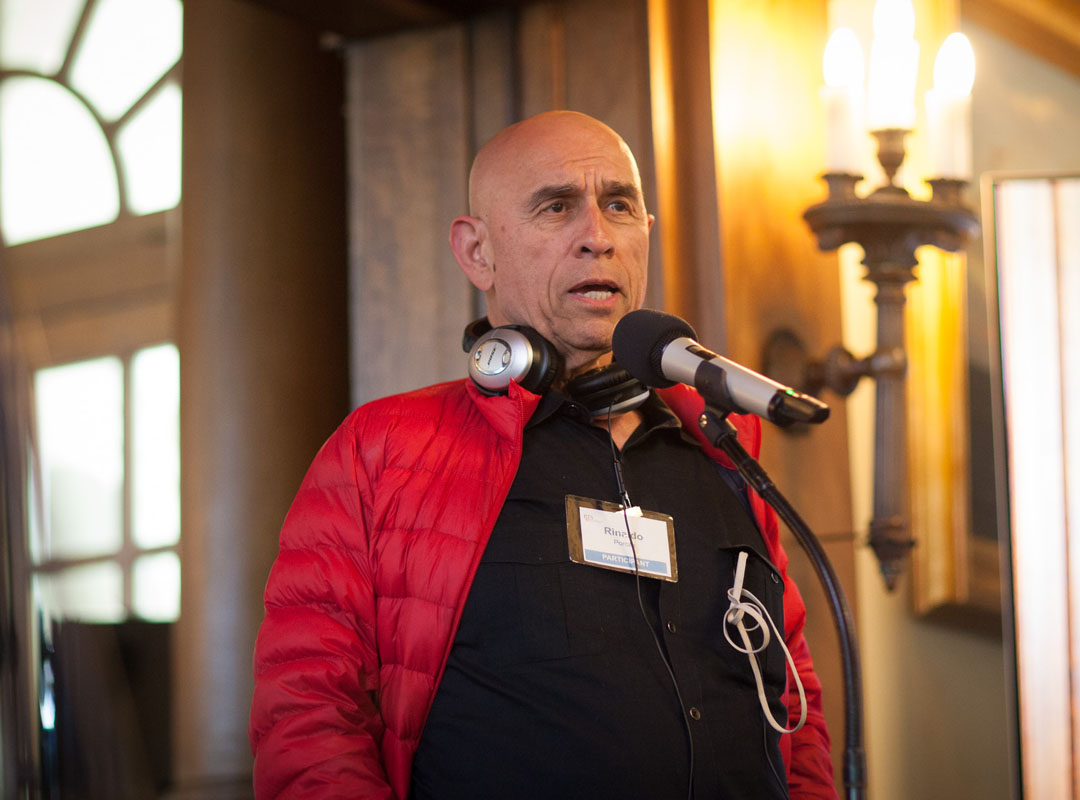

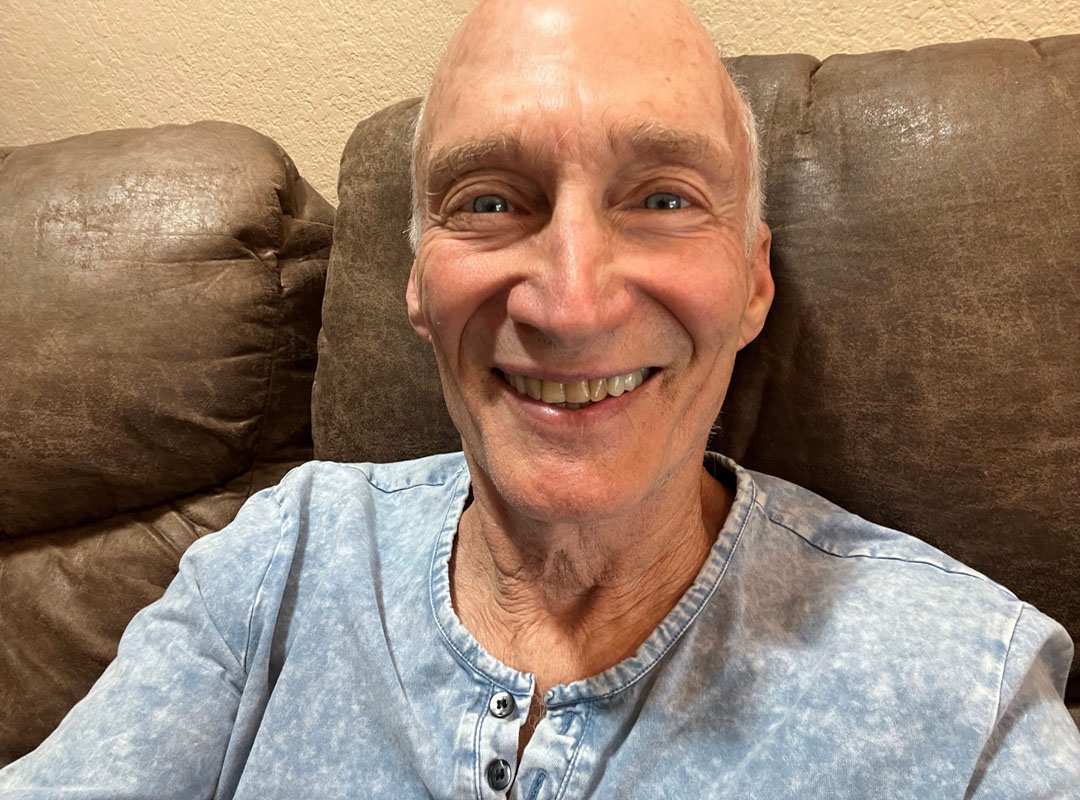
A wonderful interview, I enjoyed it tremendously.
Worth reading the text of conversation with Spiritual Teacher Dr. Ishwar Puri. Thank you very much